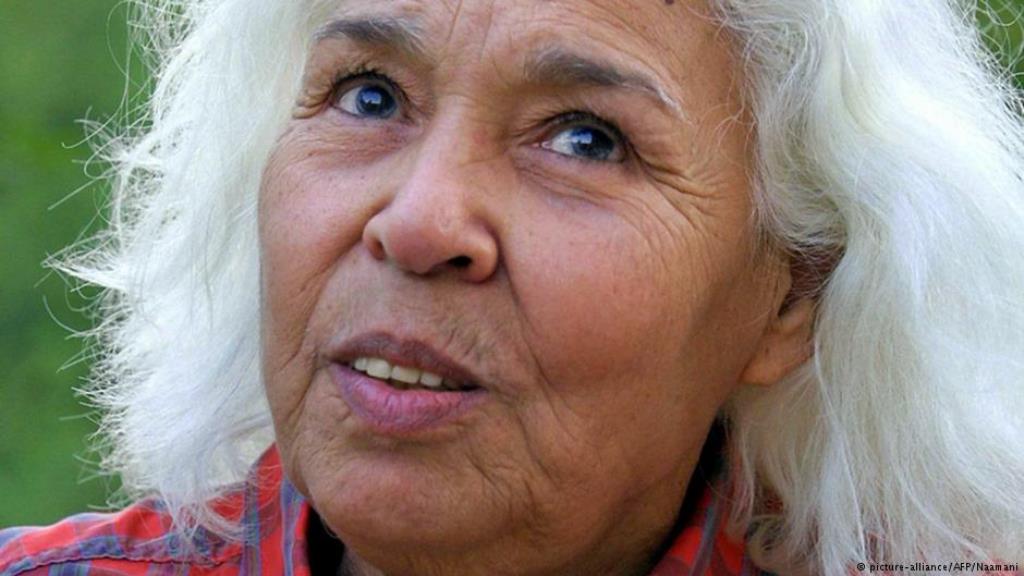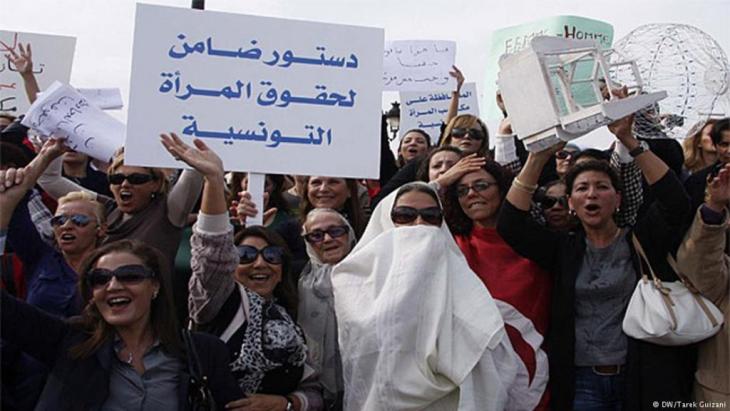"We are a hundred years behind"

First of all, how do you see the new step towards equality in inheritance in Tunisia?
El Saadawi: It's a very positive development and defintely something that every Arab country should adopt. There must be full equality between women and men in this Arab and Islamic world of ours. These days such equality exists in many countries, while we in the Arab world still lag far behind.
Equality should not be limited to inheritance. Rather, it should apply to everything, including lineage, marriage, divorce etc. There should be no discrimination on the basis of religion, sex, class or anything else, because such things are, in my opinion, axiomatic and not up for debate.
Why is Tunisia the first Muslim Arab country to take such a daring step vis-a-vis women?
El Saadawi: Tunisia is at the forefront because of its women's movement. Indeed, the country is at the forefront because of former President Habib Bourguiba and because of the enlightened thinking of the current President Beji Caid Essebsi. In truth, Tunisia is a pioneer, despite the fact that it has a long way to go. Ever since the Sadat era, we in Egypt have lagged behind, having once been in the vanguard. We must work towards full equality in law in Egypt and throughout the Arab world.

Why has the debate about inheritance rights equality kicked off now?
El Saadawi: From the time Anwar Sadat came to power, Egypt was simply focussed on collaborating with the Israeli, American and British colonial powers. The country has suffered and continues to suffer under the yoke of colonialism. We've been behind since the 1970s – although Egypt did take a major leap forward in the January 2011 revolution, thanks to the younger generation. Women and men are making positive moves and this suggests that we're on the right track.
Can Tunisia serve as an example to other Arab countries – above all to Egypt – given Abdul Fattah al-Sisi's call to renew religious discourse? Are we likely to see a similar step soon in Egypt?
El Saadawi: I do not believe in the notion of role models. There may be countries that are ahead of Tunisia, but each country operates and progresses at its own pace, according to its circumstances. We can say, though, that each country would benefit from Tunisia's experience. We in Egypt are also making progress. These days I write articles for Al-Ahram and Al-Masry Al-Youm, which I could not have done in the days of Sadat or even in the days of Abdel Nasser. So we are moving forward with courage, but we have a long way to go. Tunisian women are gutsy, as are Tunisians generally – not to mention the Tunisian president.
Do you think that the Tunisian inheritance equality law could be implemented in other Muslim Arab countries? Are Arab societies really ready for such a move?
El Saadawi: When politics and culture are sophisticated, so is society at large. All these things play a role. The most important thing is that we progress intellectually and ideologically in line with progress on the political front. Religion must be a private matter, unrelated to politics or society.
Isn't equality in inheritance a step too far for the Arab world?
El Saadawi: This is not the first step, by any means. We're not starting from scratch, after all history builds cumulatively. It is one in a series of steps, encouraging many to discuss equality in inheritance and lineage.
There are those who believe that the injustice facing women from man-made and Sharia laws is largely the result of their misapplication, rather than any problems with the laws themselves. How do you see it?
El Saadawi: In Tunisia, the laws are ahead of the reality for ordinary women. I've visited Tunisia several times in the past. The law is ahead of the actual status of women in society today. In situations where the political leadership is bold, like under Essebsi, and endorses progressive laws, as Bourguiba did, while the social, political, religious and cultural situation remains unchanged, we find the law to be progressive. However, neither women nor even the government are able to apply such progressive laws in practice. We therefore need a cultural, political and intellectual renaissance to strike the monster and the merchants of religion.
Don't you think that trying to introduce new laws that are not in line with Sharia might lead to social and religious problems – after all, these matters go to the very heart of Arab and Islamic societies?
El Saadawi: It's only natural that laws sometimes contradict the status quo. After all, nothing is set in stone. A hundred years ago, we entered the 20th century saying the same things about equality between women and men. We are a hundred years behind. We are sick and tired of the issue of equality. All things change and keep changing, because people today and especially young people, reject the merchants of religion and politics. Nor do they accept being exploited by internal or external powers. That's why we need to renew the religious discourse and revolutionise religious thinking.
Interview: Imane Mellouk
© Qantara.de 2019
Translated from the Arabic by Chris Somes-Charlton
Nawal El Saadawi, an Egyptian writer and feminist activist, is one of the pioneers of the modern women's movement in the Arab world.
